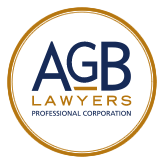Commercial Lease: Some Considerations

A commercial lease is a written agreement between a landlord and a business tenant. This legally binding contract allows you, as the tenant, to use the commercial premises for your business activity for a specified period by promising to pay an agreed-upon rate to the landlord.
Leasing commercial space is often a two-part process. First, you sign the offer to lease. Then, after negotiations take place, you sign the lease containing the details of the negotiations.
Here are a few items to keep in mind as you investigate commercial property:
- Be ready to negotiate. You are not expected to agree to all terms immediately, so be prepared to go back and forth.
- Take the time to understand what is included in your lease. Go through it carefully on your own, then with your team of professionals (lawyer, accountant, lease consultant, property inspector, etc.).
- Always get decisions and changes in writing — a verbal agreement may not stand up in court.
- The amount of rent you pay is important, but other aspects of the lease are also significant.
- Be prepared to walk away.
Things to consider when signing a commercial lease
There is no such thing as a standard commercial lease, but there are common points covered by most leases. Commercial property leases can include the following items:
Term
You will occupy the premises for either a fixed or renewable period. Your lease may be month-to-month or for a much longer term. The clause describing the term of your lease may include renewal options.
Rent
Commercial rents are usually based on the size of the space or the square footage. Your landlord may add operating costs to this base rent.
Various types of commercial leases involve different rent calculations:
- Percentage rent lease — If you own a retail business, you might pay a base rent plus a percentage based on your sales.
- Gross rent lease — You pay a flat rate equal to base rent plus other specific expenses. The landlord pays the other operating costs.
- Net lease — You pay some of the taxes plus the base rent.
- Net-net lease — You pay base rent, taxes, and insurance costs to the landlord.
- Triple net lease (net-net-net) — You pay base rent, taxes, and operating and maintenance costs.
Space and Services
Does your lease cover the actual square footage? It never hurts to take measurements. Which common spaces are included (washrooms, lobby, etc)?
Find out whether the following services are included:
- Parking — Is there enough for all tenants and their clients?
- Heating, ventilation, and air conditioning — Is this a 24-hour service?
- Cleaning service for common spaces
- Security
- Snow removal/grass cutting/landscaping
Healthy Features
To help keep you and your employees healthy, look for building features such as:
- Indoor stairwells that are designed for everyday use
- Standards for indoor air quality
- Smoking restrictions near doors, building air intakes, and operable windows
- Building certifications such as LEED, BOMA Best, and WELL
Also, it may be useful to find a building near amenities such as:
- Public transit
- Safe and appealing walking/cycling routes
- A park or fitness options
- Healthy food options
Type of Business Permitted to Operate on the Premises
You may need written permission to use the premises for any purpose other than the original one. Find out if there are restrictions that could limit the future direction or expansion of your business.
Repairs
Determine which repairs are your responsibility and which are your landlord’s.
Leasehold Improvements
You may be allowed to make some changes or improvements and install equipment. Will these fixed assets be yours or will they become the landlord’s property if you leave? Will you have to restore the property back to its original state?
Some fixtures are included in the property, such as built-in items that would damage the premises if removed. Make sure you know what you can take with you and what you will have to leave behind.
Subletting
If your business expands, you might outgrow your space before the lease ends. You may need to sublet the premises, so it is a good idea to work this into a clause in your lease.
It may be okay to assign the lease to your own partners, subsidiaries, or anyone with whom you merge, but you may not be allowed to sublet to anyone else outside your business without the landlord’s consent.
Insurance Details
What is covered by your landlord’s insurance? You may be responsible for paying for repairs to anything not covered by this.
Taxes
Will your landlord pay all property taxes? Are you responsible for any municipal taxes?
Utilities
Any utilities that you must pay for, such as water, electricity, sewer, gas, phone, etc., should be listed. Your landlord may pay for anything that is not metered and then bills you accordingly.
Other Items to Consider
These may include details about:
- Options for the first refusal if more space becomes available
- Building rules
- Signage
- Damage and destruction
- What happens if the building is condemned
- Escape clause (in the event you become unable to run the business)
Because commercial leases can be complex, always enlist the aid of experienced professionals for guidance. Before signing any commercial lease, you may wish to seek legal advice.
